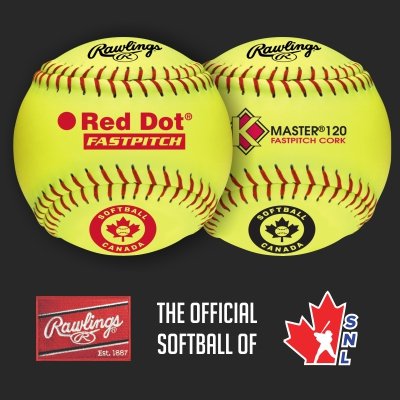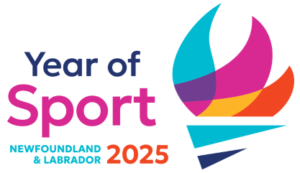Coaching Programs
1. National Coaching Certification Program (NCCP)
Launched in 1970, the NCCP is a partnership between the Coaching Association of Canada (CAC), the federal, provincial, and territorial governments, and more than 60 national sport organizations and their provincial and territorial sport associations. As Canada’s recognized training and certification program, the NCCP serves a wide range of coaches — from those who introduce beginners to sport to those working with high performance athletes.
In response to an extensive evaluation, the program has been going through a major re-development since the late 1990s. Key to these changes is a shift in emphasis from “what a coach knows” to “what a coach can do.” In the new, competency-based system, training and certification programs are based on the clearly defined needs of participants. This new structure addresses the full range of sports in Canada at various levels of skill and in a variety of settings.
2. The New NCCP Model
The new NCCP model is made up of three streams and a total of eight contexts, each with its own coaching requirements. Each sport is responsible for identifying how many of the eight contexts are relevant to their sport. The table below shows which contexts have been identified by Softball Canada:
Stream 1 – Community Sport
Coaches in the Community Sport stream typically become involved on a voluntary (and often short-term) basis because their children participate in a sport. They tend to work with participants of all ages who are new to the sport.
Stream 2 – Competition
Coaches in the Competition stream usually have previous coaching experience or are former athletes in the sport. They tend to work with athletes over the long term to improve performance, often in preparation for provincial, national, and international competitions.
Stream 3 – Instruction
Coaches in the Instruction stream must have sport-specific skills and training, whether coaching at the beginner or advanced skill levels. Many are former participants in the sport.
3. Training and Certification
A coach is described as:
• In Training – when a coach has completed some of the required training for a context;
• Trained – when a coach has completed all required training for a context;
• Certified – when a coach has completed all evaluation requirements for a context.
The new NCCP model distinguishes between training and certification. Coaches can participate in training opportunities to acquire or refine the skills and knowledge required for a particular coaching context as defined by the sport. To be certified in a coaching context, coaches are evaluated on their demonstrated ability to perform within that context in areas such as program design, practice planning, performance analysis, program management, ethical coaching, support to participants during training, and support to participants in competition.
Certified coaches enjoy the credibility of the sporting community and of the athletes they coach because they have been observed and evaluated “doing” what is required of them as a competent coach in their sport. They are recognized as meeting or exceeding the high standards embraced by more than 60 national sport organizations in Canada. Fostering confidence at all levels of sport, certification is a benefit shared by parents, athletes, sport organizations, and our communities.
To check your NCCP Training or Certification Status, please visit the Coaching Association of Canada website.
4. Regional Coach [Competition – Introduction context]:
In April of 2004, the Coaching Association of Canada (CAC) and its partners launched Competition – Introduction and the first series of multi-sport coach training modules of the new competency-based NCCP model. Some sports are integrating these multi-sport modules into their sport-specific training. Softball Canada has chosen to integrate these multi-sport modules in to their training.
The goals of the Competition – Introduction context are fun, fitness, fundamentals, and performance at regional or provincial competitions as well as the consolidation of basic skills of the sport. Click here to view the outcomes and criteria for the Regional Coach.
The training for the Competition – Introduction context is comprised of two workshops: 1) the What to Coach Clinic and the 2) How to Coach Clinic. Each clinic is offered over a weekend. Competition – Introduction clinics for Regional Coaches workshops are offered through Softball Newfoundland Labrador. For upcoming clinics and information, please contact Dave Feener (Softball NL Executive Director) at executivedirector@softballnl.ca.
Following completion of all training, a coach can choose to become certified in the Competition – Introduction context through an evaluation process managed and coordinated by his or her Provincial/Territorial Softball Association. Prior to the evaluation, the coach must present the Evaluator with their completed Coaching Portfolio and a copy of the practice plan they will be running. For the evaluation, the coach must run a 45 minute practice with age appropriate athletes. At minimum, the practice must include a drill that develops a basic skill as well as a drill that uses a basic skill when teaching a tactic. The coach must complete the Analyze Performance evaluation and must complete the on-line Make Ethical Decisions evaluation offered by the Coaching Association of Canada.
For details on becoming a trained or certified Competition – Introduction Regional Coach, please contact Dave Feener (Softball NL Executive Director) at executivedirector@softballnl.ca.
5. Initiation Coach [Community Sport – Initiation context]:
Recognizing the value that Canada’s 1.2 million volunteer coaches bring to our communities, CAC and its partners announced the launch of the NCCP Community Sport – Initiation context in October 2004. Often the parents of participants, volunteer coaches usually hold down full-time jobs, so they have limited time for training. The program focuses on essentials over one or two days, placing emphasis on safety, fun, ethics, teamwork, and values beyond the game. Training helps volunteers foster love of the sport, promote participation and teach basic skills to beginners of all ages through a variety of activities. The Learn To Coach clinic is six hours in length. The goals of the Learn To Coach clinic are to help prepare the coach to do some of the things that will be required of a community coach. The clinic focuses on the following:
• expressing your coaching philosophy
• making decisions when you are faced with legal or ethical situations that are likely to occur in your coaching environment
• understanding and teaching basic skills, rules and equipment of Softball
• coaching games/activities in a way that is suitable for children
• modifying a pre-designed practice
• identifying your tasks as a community coach
Click here to view the outcomes and criteria for the Initiation Coach.
To sign-up for a Community Sport – Initiation clinic, please contact Dave Feener (Softball NL Executive Director) at executivedirector@softballnl.ca.
6. Recreational Coach [Community Sport – Ongoing Participation context]:
Participants of all ages are encouraged to continue to participate in the sport for fun, fitness, skill development, and social interaction. Training allows volunteers to help participants to continue to love the sport, learn more skills and continue participation. Like the Community Sport – Initiation context, Community Sport – Ongoing Participation clinic are generally held over a one to two day period. To register for a Community Sport – Ongoing participation clinic, please contact Dave Feener (Softball NL Executive Director) at executivedirector@softballnl.ca.
7. Instruction Stream
This stream will be developed by Softball Canada in the future. Participants of all ages, with little or no sport experience, are taught basic sport skills. The purpose of the Instruction stream is to create an understanding of the basic techniques and skills of the sport. Training will help the volunteer understand and teach the basic skills of the sport to participants. Instruction clinics are typically held over a weekend.
8. Participant Development Model
Click here to view a copy of Softball Canada’s Participant Development model.
9. Coach Development Model
Click here to view a copy of Softball Canada’s Coach Development model.
Coaches Certified under the former NCCP Coach Development Model must have attained a Minimum Certification Level (in brackets) to coach at the events listed below:
- Canada Games (Fully Certified Level III)
- Canadian Fast Pitch Championships (Fully Certified Level II)
- Canadian Slow Pitch Championships (Fully Certified Level I)
- Softball Newfoundland Labrador Provincial Championships (Minimum NCCP Level 1 Softball Technical)
If you are interested in becoming a Certified coach, please contact Dave Feener (Softball NL Executive Director) at executivedirector@softballnl.ca.








